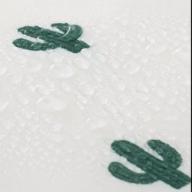錯::
There have not enough buses near my new home so I have to walked to school everyday
對::
There were not enough buses near my new home so I had to walk to school every day
為什麼錯?? 列舉類似例子
下句的work 為什麼不是worked?? thx
英文文法問題,請舉例
2011-01-08 8:20 am
回答 (3)
2011-01-08 6:51 pm
✔ 最佳答案
There (1) have not enough buses near my new home so I have to (2) walked to school (3) everyday.三個錯處:
(1)
用錯 have, 應該用 are 或 were. 我們用there as an ‘empty’ subject + is/are/was/were/will be/should be/can be/must be 介紹,引入新的消息,知識,信息或者說明某事,某物存在或發生
There are problems.
There is not enough room.
There should be a bus in five minutes.
唯一have 用在 there 後面是 There have been …..
There have been no comments on the documents.
(2)
首先了解,”Have to” 不是modal verb, 不同 have, has, had, will, would, should, can, may etc. Have to 相似 must, “don’t have to” 相似 “need not”. ”Have to” 和”must” 有差異, “Have to” 多用在 rules和laws上.
單是 have, have + past participle, have walked 是 present perfect tense.
Have to + base form of verb
To 是infinitive, 所以不應該用 walked , 用 “walk”. 在這句子, "to" 不是 preposition.
I want to learn Japanese. (“to” is used as an infinitive)
He is used to working at night. (“to” is used as a preposition)
I am looking forward to seeing you. (“to” is used as a preposition)
(3)
every day 在這句子是兩個字, 要分開, 記住若是一個字, everyday 是用作 adjective., 通常是 before a noun. e.g. everyday routine, everyday language
This example shows how computers affect our everyday life. (everyday is an adjective)
I take a walk every day.
There (1) are not enough buses near my new home so I have to (2) walk to school (3) every day. (present tense)
There (1) were not enough buses near my new home so I had to (2) walk to school (3) every day. (past tense)
---------------------------------------------------------------------------------------
To 回答者:Yu Sum
有時, 2 個動詞是可以擺埋一齊.
We don’t have cupboards so we make do with boxes. [make 和 do 都是 verbs (動詞)]
Would you like to help peel the potatoes? [help 和 peel 都是 verbs (動詞)]
We were let go. [let 和 go 都是 verbs (動詞)]
2011-01-08 8:20 pm
Godfrey:
You didn't explain why the word "to" has different functions.
I want to learn Japanese.
He is used to working at night.
I think Yu Sum is making a general statement but you are talking about those few exceptions in using bare infinitive. Stop challenging people, dude.
You didn't explain why the word "to" has different functions.
I want to learn Japanese.
He is used to working at night.
I think Yu Sum is making a general statement but you are talking about those few exceptions in using bare infinitive. Stop challenging people, dude.
2011-01-08 9:03 am
呢個TO唔係PREPOSITION,所以一般後面都要用BARE VERB(即係唔轉TENSE).
2011-01-08 01:22:27 補充:
e.g. Yesterday, I went to(preposition) cinima(名詞).
e.g.I wanted(動詞) to go(動詞) to cinima yesterday.
其實個TO係分開2個動詞...因為2個動詞唔可以擺埋一齊。
2011-01-08 01:22:27 補充:
e.g. Yesterday, I went to(preposition) cinima(名詞).
e.g.I wanted(動詞) to go(動詞) to cinima yesterday.
其實個TO係分開2個動詞...因為2個動詞唔可以擺埋一齊。
收錄日期: 2021-04-20 14:14:26
原文連結 [永久失效]:
https://hk.answers.yahoo.com/question/index?qid=20110108000051KK00035

